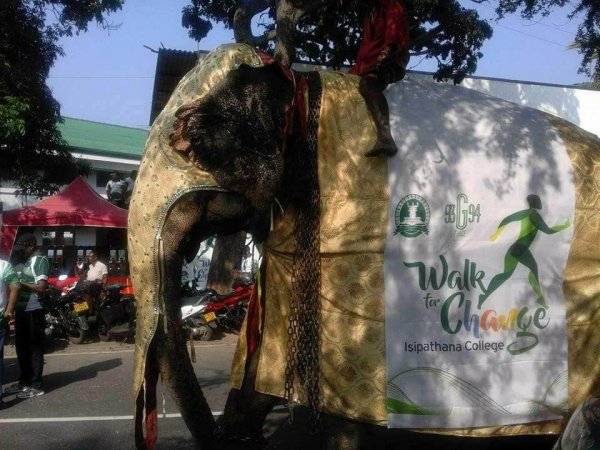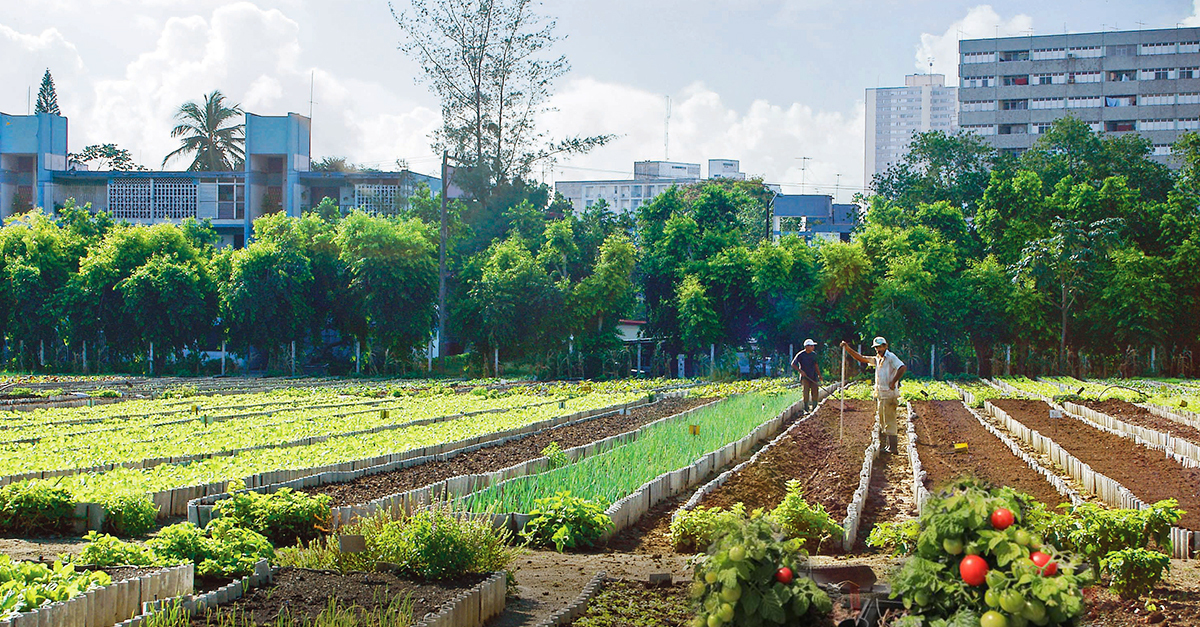
I turn into a narrow, gravel lane adjoining Horana road, where I come upon a greenhouse, with light moss snaking down its otherwise pristine walls. Opposite the house, surrounded by the green wired fence lies a generous plot of land—about 5,000 square feet—populated with large vegetable patches, shrubbery, and a butterfly garden.
This is not what I imagined an ‘urban garden’ to look like. Urban gardening is very similar to community gardening, where a large group of people share and grow food on a single piece of land. The only difference is that an urban garden should typically be located in a city, whereas a community garden can be located anywhere.
Run by an organization called Eco Friendly Volunteers (ECO-V), the produce that is yielded is shared among those that contribute labour, and also gets sold to local markets. Although the organization’s founder, Kanchana Weerakoon resides abroad, the garden is fervently maintained by a core group of volunteers. The volunteers are usually students, who are interested in gardening and looking to build their knowledge and expertise.
Located in the outskirts of Boralesgamuwa, the area itself is not really urban; it is suburban, at best. The land is part of a private residence, which is unusual, as an urban garden is typically built on public property. So why choose a provincial location on private land for this project?
“Finding space to grow food is not easy in Colombo,” says Gayani Dissanayake, volunteer and Project Co-ordinator at ECO-V. “When the founders began this project, this location made the most sense, as the land was already there.”
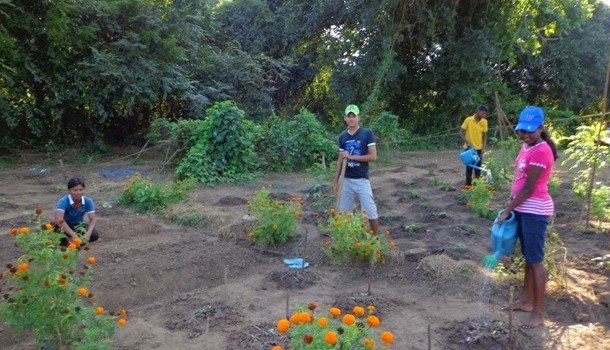
Shrinking Space
Over the last few decades, public spaces in Colombo have been steadily disappearing. As land prices continue to climb, the demand for buildable land has also increased significantly.
“The amount of people moving into cities like Colombo from rural areas is increasing exponentially,” said Professor Siri Hettige, a Sociologist at Colombo University. “As a result, everybody wants to build. Building permits are now given on plots of land as small as six perches.”
This can pose severe health implications for Colombo’s growing population. Only a fraction of the city’s higher income population have access to an off-site sewage system, with the rest of the city’s lower income residents having to use on-site disposal systems. Most of the sewage waste in lower income areas get deposited into canals.
With an increase in high rises to accommodate the city’s urban growth, Hettige fears that the contamination caused by a poor sewage infrastructure could contribute to an increase in health complications among low income residents.
“The government should really assess the risks when building high rises with no proper sewage disposal system,” said Hettige. “But at the very least, they could allocate each high rise a communal space for an urban garden. Although this won’t fix the health issues brought about by contamination, it can at least improve their diet and immune system. It is a very tiny step.”
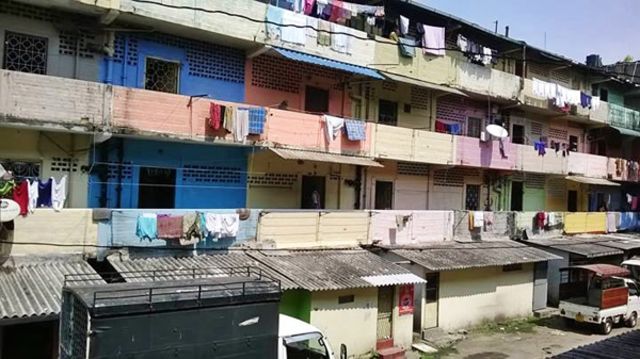
However, an issue that can be addressed on a much larger scale through urban gardening, is malnutrition.
According to Dr. Thilak Ranasinghe, Director of Agriculture, the dietary patterns of many Sri Lankans cause many people—particularly those in lower income brackets—to suffer from malnutrition.
“People are not getting enough micronutrients, which come from fruits and vegetables. Lower income groups basically have a starch rich diet. They don’t get a balanced diet,” he said.
It is clear that having urban, community gardens can have many advantages for city dwellers, but the fact remains that it is extremely difficult to find land to carry out these projects. For this reason, many private initiatives—such as ECO-V—operate in the suburbs.
Building An Urban Garden
Despite these setbacks, Professor Hettige believes that it is possible to create urban, community gardens in Colombo; but expecting it to happen on a policy level is futile.
“The only solution is a public solution. We need to create open spaces that are accessible to people in the vicinity to use it for cultivation purposes,” he said. “This needs to be done through some kind of organizational mechanism.”
Professor Hettige is part of a research organization called Centre for Development of Research and Interventions (CDRI). The organization is working to secure land in different central locations around Colombo in order to start urban gardening projects. They have already started developing an urban garden in Battaramulla.
The organization has conducted extensive research to ensure their upcoming projects fulfill their goals as effectively as possible. Through this research, they have identified several methods of practicing urban gardening, that could bring optimal benefits for the communities they are serving.
“Although the space for the garden will be communal, each individual household with have a fraction of garden space allocated to them. In our case each family gets 300 square feet, which is big enough to grow some vegetables and fruits for the family,” said Professor Hettige. “The organization also must provide necessary infrastructure. A place for a composting facility as well as planting material all need to be provided.”
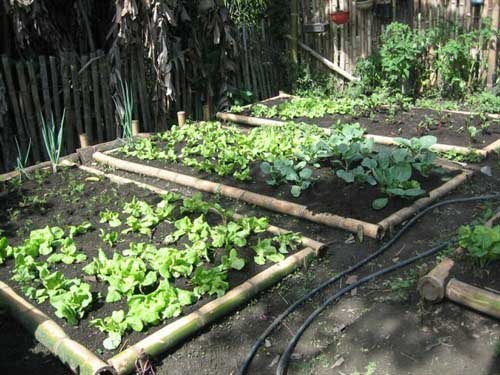
The company plans to provide water through the use of tube wells and rainwater harvesting.
Everyone using the garden will also be organized into community based organization (CBO).
Through the CBO, community members will have the freedom with facilitation,to take charge of their own plots, and formulate rules and regulations for the space. They will also need to be registered in order to be recognized by the authorities as an official organization.
Professor Hettige believes that this project has the potential to bring lasting benefits to the communities involved; and that Colombo’s new urban population would be more than equipped to grow their own produce successfully.
“Many people moving to Colombo are basically urban farmers. Most people I speak to in these high rises are from a rural areas and their families were farmers,” he said. “So they were agricultural families. They have their past, experience, and knowledge but no opportunity. This is an opportunity.”




